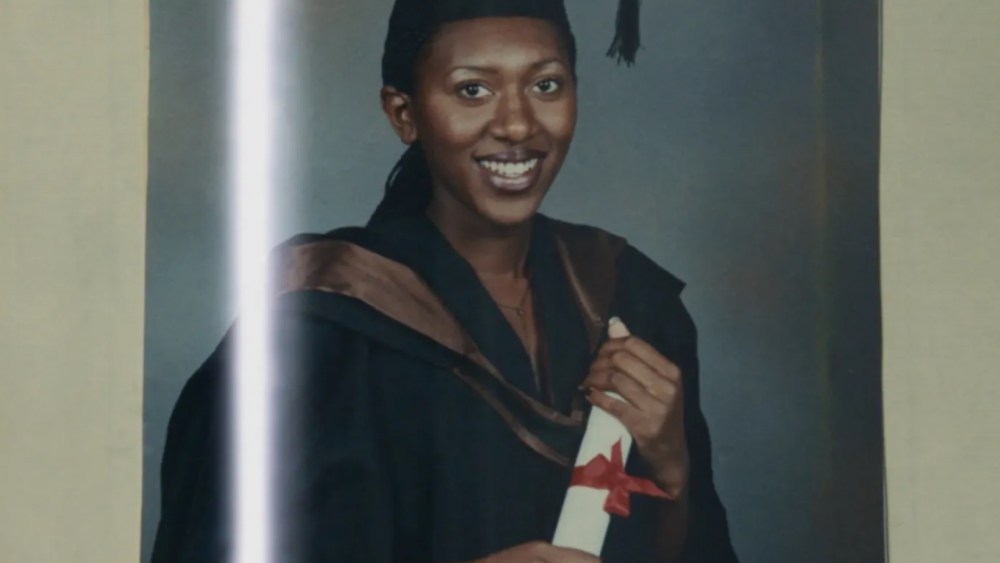The destructive energy of #MeToo and Black Lives Matter Action shifts storytelling in conversations about underrepresented and marginalized communities, even as the rebound in the United States and different countries has swung to the (far) appropriately, putting many of these positive aspects at risk.
Yet, while the Trump administration’s efforts to re-enact the initiative is a newest omen of cultural correction, threatening to once again show the clock to the black documentary producers in the Joblger film contest to show that they are trying to grab the second to undermine and rethink the widely accepted historical narrative, especially the Black expertise as a whole.
“We have a lot of algorithms, and we're actually trying to take care of the history that has been introduced to us, and now we're saying, 'We have to break that,'” said British filmmaker Eloïse King. “We have to admit that the history that has been shared… is essentially not ours, essentially not true.”
King this week has introduced a conversation with South African filmmakers Sara Chitambo-Hatira (“Black Individual Not Frustrated”), Naledi Bogacwi (Naledi Bogacwi (“Banned”) and Mmabatho Montsho (“Blood and Water”). A dialogue introduced with Trade Constitution Swift (Sisters on Movies and TV) introduces Black documentary filmmakers’ efforts to restructure narratives, making them center around underrepresented and marginalized communities.
The discussion explores the faucets of filmmakers in each private and collective narrative to inform the issue, subverting and subverting the dominant metaphor—the approach to what Chitambo-Hatira calls “rewriting and recording the reality of people who do not predate the sound.”
The director’s novel debut examines the stigma of the black community, specializing in melancholy and perceptions surrounding Africa. It shows her efforts to provide “another past, another fact”, generally believed that mental health is on the mainland, while also exploring the bias of black pain and struggle.
King's documentary focuses on the multi-billion dollar “artificial papers” trade in Kenya, highlighting the work of the group members in the “recycling” stories about black life.
“By having a lens from an individual who has traditionally not had the opportunity to do with their team…[and] This is part of this foundation by being able to navigate our nuances in these areas. ” she said.
“Shadow Student” premiered on IDFA and performed in the Joburg Film Competition this week, indicating the director's curiosity in “Cultural Turning Factors and Institutional Legislative Turning Factors” that showcased in Flox's society. “It's usually introduced what's happening on the floor at a pace,” she said. “I want to ask: Who?”
The documentary about Bogacwi is “forbidden”, which depends on the apartheid-era action film “Joe Bullet,” explores the marketing campaign for the film (the main South African feature film with all-black solids) is part of the all-black – part of the full-blown censorship effort, rather than just authorities’ pleasure and creative expression of the black community of expression.
Although it depicts what has happened over the past half century, Bogacwi links the plight of “Joe Bullet” with the ongoing struggle of black artists in South Africa’s invention groups, pointing to the current battle between Indigenous participants and broadcasters between the current court case file cases and the Royal Fund. “Nevertheless, we are still experiencing [exploitation]only to a special degree. “She said. Such plots show that for documentary producers, “a re-examination of the historical past is crucial.”
Their efforts, though often make them conflict with the gatekeepers of the institution. “Among the numerous specialists at major broadcasters and streaming platforms, “there seems to be an unknown rule that people … need not see content material driven by social issues. Individuals only need to see real crime or reality. Bogacwi insists that this should not stop documentary people with strong stories.
“I don’t think if we keep trampling on, we’ll be a technology that will tweak something. [around gatekeepers],” she said. “We don’t know what the audience wants before they get it. ”
Meanwhile, King positioned the filmmakers’ struggle in a wider crackdown on blacks and different marginalized communities while providing strong corrective measures for the legacy. “In history, individuals usually draw energy from us,” she said. This often obscures the facts: “We have [power]not to absorb the main place. ”
The Joburg movie competition will be held from March 11 to 16.
Posts Black documentary producers “destroy” and “re-examine the historical past” Appear first Allcelbrities.

